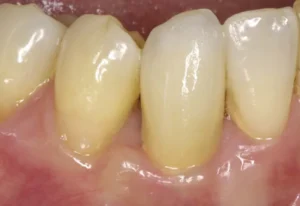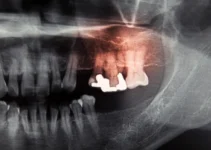Removing tartar from teeth is crucial for maintaining oral health, but frequent visits to the dentist can be costly. Tartar, or dental calculus, forms when plaque on the teeth hardens over time. If not removed, it can lead to gum disease and tooth decay. Regular brushing and flossing are your first line of defense, effectively removing plaque before it hardens. Incorporating an antiseptic mouthwash can also help minimize plaque build-up. For stubborn tartar, specialized dental tools are usually required, although some at-home kits can offer a temporary solution. However, for thorough removal and to prevent potential damage to the enamel or gums, professional cleaning by a dentist is recommended.
Home Remedies for Removing Tartar
Tartar is a hardened form of dental plaque that can significantly impact your oral health if not managed properly. While professional dental cleaning is the most effective method for tartar removal, some home remedies can help control or reduce its formation. These remedies are not a replacement for regular dental check-ups but can complement your oral hygiene routine.
Incorporating these remedies into your daily regimen can help prevent tartar buildup, ensuring healthier teeth and gums. Among the popular home treatments, using baking soda and hydrogen peroxide has shown promising results. Although these methods are generally safe, it’s crucial to use them correctly to avoid potential side effects.
Baking Soda and Hydrogen Peroxide
Baking soda (sodium bicarbonate) is a common household item that has been praised for its ability to combat tartar buildup. Its mildly abrasive nature helps in scrubbing away plaque, while its alkaline properties neutralize acids in the mouth that contribute to tartar formation. Studies have shown that using baking soda can effectively reduce plaque and improve overall oral health.
To use baking soda as a home remedy:
- Mix one part baking soda with one part water to form a paste.
- Dip your toothbrush into the paste and brush your teeth gently.
- Rinse your mouth thoroughly with water after brushing.
It’s essential to use this method sparingly, as overuse can damage tooth enamel.
Hydrogen peroxide is another powerful agent that can aid in tartar removal. It possesses antibacterial properties that help fight the bacteria in plaque. According to research, hydrogen peroxide can reduce plaque and gingivitis when used as a mouth rinse.
To incorporate hydrogen peroxide into your oral care routine:
- Use a 3% hydrogen peroxide solution, available at most pharmacies.
- Mix equal parts hydrogen peroxide and water.
- Swish the mixture around in your mouth for about 30 seconds to 1 minute.
- Spit out the solution and rinse your mouth with water.
Be cautious not to swallow hydrogen peroxide, and limit its use to once or twice a week.
Baking soda and hydrogen peroxide can be effective tools in managing tartar at home. However, it’s important to maintain regular dental visits and a comprehensive oral hygiene routine. For more tips on maintaining your dental health, explore our other articles.
Using Natural Ingredients to Remove Tartar
Maintaining oral health is crucial for overall well-being. Traditional methods for removing tartar often involve professional dental cleanings. However, there are several natural ingredients that can help in reducing tartar buildup. These alternatives are not only cost-effective but also relatively free from side effects, making them an attractive option for many people.
In this section, we will explore some of these natural ingredients, including apple cider vinegar, coconut oil, and a combination of aloe vera and glycerin. These ingredients have been studied for their potential benefits in oral care, particularly in the context of tartar removal.
While these methods should not replace professional dental care, they can serve as complementary practices to enhance your regular oral hygiene routine. Let’s dive into the specifics of how each of these natural ingredients can help in tartar removal.
Apple Cider Vinegar
Apple cider vinegar (ACV) is renowned for its various health benefits, and its potential use in oral care is no exception. The acidic nature of ACV helps in breaking down plaque and tartar, making it easier to remove. Additionally, ACV has natural antibacterial properties that can help reduce the bacterial load in your mouth.
To use apple cider vinegar for tartar removal, dilute it with water to minimize its acidity, which can otherwise erode tooth enamel. A simple mixture of one part ACV to two parts water can be used as a mouth rinse. Swish it around your mouth for about 30 seconds to a minute before spitting it out. This should be done sparingly, ideally once or twice a week, as frequent use can lead to enamel erosion.
Recent studies have shown that ACV can effectively reduce oral bacteria like Streptococcus mutans, which plays a key role in plaque formation. While more research is needed, the existing data provides a promising outlook for ACV in oral health.
Coconut Oil Pulling
Coconut oil pulling is an ancient Ayurvedic practice that has gained popularity in modern times for its oral health benefits. The process involves swishing coconut oil in your mouth for an extended period, usually 15-20 minutes. This helps to “pull” bacteria and toxins out of your mouth, potentially reducing plaque and tartar.
Coconut oil is rich in lauric acid, which has potent antimicrobial properties. Studies have indicated that coconut oil can significantly reduce Streptococcus mutans and other harmful bacteria in the mouth. This makes it an effective natural remedy for preventing plaque buildup.
To practice coconut oil pulling, take about a tablespoon of coconut oil and swish it around your mouth. Ensure it reaches all areas, including between your teeth. After 15-20 minutes, spit the oil into a trash can (not the sink to avoid clogging) and rinse your mouth with warm water. Brush your teeth as usual afterward. While coconut oil pulling is a safe and natural method, it should be used in conjunction with regular dental hygiene practices, such as brushing and flossing, for optimal results.
Aloe Vera and Glycerin
Aloe vera is well-known for its healing properties and has been used in various medicinal applications. When it comes to oral health, aloe vera has both antibacterial and anti-inflammatory properties that can help combat plaque and tartar. Glycerin, on the other hand, acts as a humectant, drawing moisture into the mouth and helping to keep oral tissues hydrated.
The combination of aloe vera and glycerin can be particularly effective in reducing tartar buildup. Aloe vera gel can be applied directly to the teeth and gums, or it can be mixed with glycerin to create a natural toothpaste. This mixture can help in breaking down plaque and soothing inflamed gums.
To use this combination, mix equal parts aloe vera gel and glycerin to form a paste. Apply it to your toothbrush and brush as you would with regular toothpaste. Be sure to cover all areas of your mouth, including hard-to-reach spots. Rinse thoroughly after brushing.
Research has shown that aloe vera can reduce the bacterial load in the mouth and improve gum health. Glycerin’s moisturizing properties add an extra layer of protection, making this combination a valuable addition to your oral care routine.
In conclusion, incorporating natural ingredients like apple cider vinegar, coconut oil, and a mixture of aloe vera and glycerin into your oral hygiene routine can provide additional benefits in maintaining oral health. While these methods are not substitutes for professional dental care, they can serve as effective complementary practices. For more insights and tips on oral health, be sure to check out our other articles.
Preventing Tartar Build-Up
Preventing tartar build-up is essential for maintaining optimal oral health. Tartar, or dental calculus, forms when plaque hardens on your teeth. Once it forms, it can only be removed by a dental professional. Hence, it’s crucial to adopt daily habits that inhibit its formation.
Adopting a thorough oral hygiene routine not only keeps your teeth and gums healthy but also minimizes the risk of tartar accumulation. From proper brushing techniques to choosing the right toothpaste, every step plays a significant role in maintaining a tartar-free mouth.
Proper Brushing Techniques
One of the most effective ways to prevent tartar build-up is by using proper brushing techniques. It isn’t just about brushing frequently but also about how you brush. Effective brushing removes plaque before it hardens into tartar. Here are some tips to ensure you’re doing it right:
- Use a toothbrush with soft bristles to avoid damaging your gums.
- Hold your toothbrush at a 45-degree angle to your gums.
- Brush for at least two minutes, covering all surfaces of your teeth.
- Make sure to brush your tongue and the roof of your mouth.
In addition, replacing your toothbrush every three to four months is crucial. Worn-out bristles are less effective at removing plaque and can potentially harm your gum tissue.
Using Anti-Tartar Toothpaste
Choosing the right toothpaste can make a significant difference in preventing tartar build-up. Anti-tartar toothpastes often contain fluoride and other active ingredients that help reduce plaque formation. Fluoride strengthens enamel and makes teeth more resistant to decay and plaque build-up.
Look for toothpaste that carries the American Dental Association (ADA) seal of acceptance. This indicates that the product has been tested for efficacy and safety. Many anti-tartar toothpastes also contain pyrophosphates and zinc citrate, which help prevent the crystallization of calcium and phosphate that leads to tartar formation.
Combining the use of anti-tartar toothpaste with proper brushing techniques creates an effective defense against tartar build-up. Additionally, regular dental check-ups and cleanings will help ensure that any tartar that does form is promptly removed, keeping your teeth and gums healthy.
Diet Changes to Reduce Tartar Formation
Maintaining a healthy diet is essential not only for your overall well-being but also for your oral health. Tartar formation, also known as calculus, is hardened plaque that can contribute to periodontal disease and other oral issues. Implementing specific dietary changes can play a significant role in reducing tartar buildup. Understanding the impact of sugar, fiber, and hydration on oral health can help you make informed choices to protect your teeth and gums.
In this section, we will explore three significant dietary adjustments you can make: reducing sugar intake, increasing fiber in your diet, and staying hydrated. These changes can aid in keeping your mouth clean and your teeth free from excessive tartar.
Reducing Sugar Intake
Sugar is one of the primary culprits behind plaque and tartar formation. Bacteria in your mouth feed on sugar, producing acids that can erode tooth enamel and lead to plaque buildup. Over time, this plaque hardens into tartar, which is much more challenging to remove without professional dental cleaning.
To reduce sugar intake, consider the following steps:
- Limit consumption of sugary snacks and beverages, such as candies, sodas, and pastries.
- Opt for sugar-free alternatives, including chewing gums sweetened with xylitol, which can actually help reduce plaque formation.
- Read food labels carefully to identify hidden sugars in processed foods.
By making these changes, you can significantly lower the risk of tartar formation and maintain better oral health.
Increasing Fiber in Your Diet
Fiber plays a crucial role in maintaining a healthy mouth. Foods high in fiber require more chewing, which stimulates saliva production. Saliva is a natural cleanser for your teeth and gums, helping to wash away food particles and bacteria that can lead to plaque and tartar.
To increase fiber in your diet, include more of the following foods:
- Fresh fruits and vegetables: Apples, carrots, and celery are particularly beneficial as they require a lot of chewing, which increases saliva flow.
- Whole grains: Brown rice, whole wheat bread, and oatmeal can provide the necessary fiber to help keep your mouth clean.
- Legumes: Beans and lentils are excellent sources of fiber that can contribute to oral health.
Incorporating these fiber-rich foods can help you maintain cleaner teeth and reduce the likelihood of tartar formation.
Staying Hydrated
Hydration is often overlooked when discussing oral health, but it is incredibly important. Adequate water intake helps maintain saliva production, which is essential for neutralizing acids produced by bacteria in your mouth and washing away food particles and debris.
Here are some tips to stay hydrated:
- Drink plenty of water throughout the day, aiming for at least eight 8-ounce glasses.
- Limit beverages that can dehydrate you, such as caffeine and alcohol.
- Include water-rich foods in your diet, like cucumbers, watermelons, and oranges.
By staying properly hydrated, you support your body’s natural ability to maintain oral hygiene and reduce tartar buildup. In conclusion, making conscious dietary choices can have a profound impact on your oral health. By reducing sugar intake, increasing fiber in your diet, and staying hydrated, you can significantly reduce the risk of tartar formation. For more insights into maintaining optimal oral health, be sure to explore our other articles.
Frequently Asked Questions About Tartar Removal
Here you’ll find concise answers to common questions about removing tartar from your teeth effectively at home.
What is the best method to remove tartar from teeth at home?
The most effective at-home method to help manage tartar buildup is regular brushing and flossing using fluoride toothpaste. While these actions won’t remove existing tartar, they prevent new tartar from forming. For removing existing tartar, it’s crucial to visit a dental professional who can perform a safe and thorough cleaning using specialized tools.

My name is Salman Kapa, a 73-year-old expert in bone regeneration and dental implantology. With decades of experience in the field, I am dedicated to advancing our understanding of oral health and hygiene. Through my research and writing, I aim to contribute to the development of innovative solutions in dental care.




